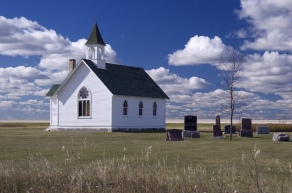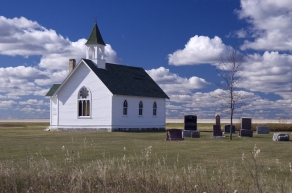
Jesus came to earth to live among us with his heart wide open. He came to love, because “God is love” (1 John 4:8) and “the Father and I are one.” (John 10:30) At the Last Supper he told his friends that “everyone will know that you are my disciples, if you have love for one another.”
Living so fully in love led to Jesus’ heart being broken, over and over. He saw children going hungry and elders being neglected. He saw people with disabilities banished from their communities and so-called “outsiders” demonized. He saw systems of power supported by violence, making a few people rich at the expense of many others. He knew that none of this was God’s will, and it broke his heart.
Jesus called his disciples to “be my witnesses…to the ends of the earth.” (Acts of the Apostles 1:8) That means that we, individually and as communities, should love as Jesus did. It means that when children in school or elders in a food store are gunned down by an assault rifle, our hearts will be broken. Again… and again… and again.
Continue reading...

As churches emerge from pandemic practices and take a fresh look at the way we used to do things, many are pondering what aspects of the past two years might carry over or influence our liturgies ahead. Some are committed to continuing worship online one way or another, some are challenged by the thought of returning to the common use of a common chalice. Some are wondering how they will exchange the Peace. The hand sanitizers that appeared in abundance in 2021 are sliding into the shadows. In all these things, the church is being given an invitation to enrich and expand its liturgical practices and understanding. Will we accept the invitation?
Ablutions, ceremonial washing of the priest and people, have been part of worship, or preparation for worship, for centuries. Jews, Christians, and Muslims, all have traditions of washing hands, face, and even feet, before prayer. Many Episcopal Churches maintain the ancient custom of keeping a bowl of baptismal water by the entrance to the church for people who want dip their fingers and sign themselves with the cross upon entering the nave. In addition to reminding worshippers of their baptism, this practice is a remnant of the medieval hand-washing before the Eucharist. Another tradition is the use of a lavabo bowl, held by an acolyte who then pours water over the celebrant’s fingers after the altar has been prepared and before the Eucharistic Prayer. Often, while engaging in this symbolic washing, the priest recites a verse from the psalms, “I wash my hands in innocence, and go around your altar, O Lord” (Psalm 26) or “Wash me thoroughly from my iniquity, and cleanse me from my sin.” (Psalm 51).
Continue reading...

What does it take for a community of faith to see itself in a new way, or to believe that its neighbors could find value inside old red doors?
Episcopal churches in Indiana, small and large, are finding that it takes a type of boldness rooted in knowledge of the good they have to offer: Good mission, good faith, and good space. Self-awareness about these assets is being awakened through the Church Buildings for Collaborative Partnerships project (CBCP).
Funded by a Thriving Congregations grant from Lilly Endowment, CBCP is underway through a partnership with the Episcopal dioceses of Indianapolis and Northern Indiana, along with two other organizations: Partners for Sacred Places and Indiana Landmarks. All 82 Episcopal faith communities in Indiana have the opportunity to participate, each with a team of three to seven clergy and lay leaders.
Continue reading...

Congregations within the Episcopal Church tend to be loners. We seldom interface with our neighboring Episcopal churches and are often detached from our diocese. While we celebrate similar milestones and struggle with the same challenges, it is rare for congregations to collaborate continuously for ministry.
In 2015, a collaborative ministry was formed within the Diocese of New Jersey to address the challenges and the unique needs of the ten historically Black congregations. The members of this ministry include clergy and lay leaders from these congregations and a Diocesan staff liaison. This ministry was named the Commission on Black Ministry (COBM).
Continue reading...

“This can be the next rector’s problem,” I said to myself.
A silk dossal curtain hung behind the altar at Church of the Holy Communion in Memphis. It measured almost twenty feet tall and fourteen feet wide – a royal blue damask field with gold bands and appliqued image of the ascending Christ. Wippell made the curtain for us in the early 1950s, shortly after Holy Communion moved to its current site. The dossal presided over every Eucharist, offered hope at every funeral, and appeared in every wedding and graduation picture for three generations. But, it had begun to show its age: The fabric was threadbare and the porcelain tone of Jesus’ skin reflected the artistic sensibilities of a former age.
Continue reading...

This month we offer five reflections on hybrid church and digital ministry. Please share this digest with new members of your vestry and extend an invitation to subscribe to ECF Vital Practices to receive Vestry Papers, blogs, and the monthly digest.
Continue reading...

The Episcopal Church needs to ask bigger questions.
Pastoral training has long taught us to look for the bigger questions: Is this person really upset about the color of the new carpet or does this person feel that too much is changing too quickly? Is this person really angry about last week’s sermon or is there something going on at home?
We are more effective pastors when we identify underlying issues and address them directly. The same principle applies when we take our place in the councils of the church: If we ask the bigger questions, we will get better results.
Continue reading...


In my previous blog, we discussed the absolute importance of eliminating gossip as the first step to transforming ourselves, and in so doing, our parish communities. I mentioned at the close of the blog that engaging the work of eliminating gossip was itself transformative.
If you’ve taken on the challenge of improving parish-wide communication, congratulations. This is a truly significant accomplishment that will yield extraordinarily positive results. As I reflected on the next logical step to help us advance, it occurred to me that perhaps we’ve not fully understood how limiting the past two years have been, and in some ways, continue to be.
Continue reading...

Transformation. From a cynical perspective, it’s nothing more than another buzzword that’s been overused by consultants like me.
Yet when I read how various dictionaries defined transformation, my heart softened. When we talk about being transformed, we’re talking about a making a significant change – a radical change – as some sources say, for the better.
As we begin to emerge into a post-pandemic world that will most certainly still include COVID, the church is right to consider what being transformed will look like. How do we transform as a church writ large and as individual parish communities?
Continue reading...

My first challenge as a new rector was a common one: How do I make this team into my team?
I would have plenty of opportunities to recruit new staff in subsequent years, but I had to begin my ministry with a team that had been assembled by someone else. My first step was to establish core values: teamwork, dedication, and excellence.
I wish I could say that my new colleagues and I discerned these principles together, but we didn’t. This was my way of letting the existing staff know the new rector’s style, of establishing baseline expectations that would apply equally to all of us, and of reshaping an existing system to achieve new outcomes.
Continue reading...

Church growth and vitality will continue to be an issue for congregations in the new year as it is today. Whether congregations are urban or rural, racially diverse or not, large or small we all need to find hope for the future church.
Many are especially concerned with recent reports that the U.S. church membership had fallen below majority for the first time. In 2020, 47% of U.S. adults belonged to a church, synagogue, or mosque, down more than 20 points from the turn of the century.
Additionally, the General Convention of the Episcopal Church – Parochial Report Data 2019 reports that the Median Average Sunday Worship Attendance is now 51 congregants.
Continue reading...

“No, I did not get ordained online.” Let’s add that to the list of phrases I never thought would hear myself say.
I recently officiated at a destination wedding. About an hour before the ceremony, the audio technician asked me to do a sound check. Needing something to say as he pressed buttons and turned knobs on his control board, I began reciting from memory a passage that we would all be hearing later that evening: “Dearly beloved: We have come together in the presence of God to witness and bless the joining together of…”
“That’s enough,” he interrupted. “You’re a real pro.”
“Thank you. I am actually a professional. I went to seminary and everything.”
“Really?” he asked with a blend of shock and incredulity. “Most of the officiants I work with got ordained online.”
Continue reading...

A lot has been thrown at church leaders since the onset of this pandemic. I don’t need to rehearse all the ways we’ve turned on a dime, improvised, and modernized. It’s been amazing to watch The Episcopal Church toss on its lifeless head that worthless, old adage: “We’ve never done it that way…”
All that said, however, there are a number of things we’ve truly lost during the pandemic. Or things we’ve nearly lost, and can very well lose entirely if we’re not intentional about actively working to cultivate and restore them, once again.
One of those things is our bonds of fellowship – “church membership” is the institutional term that comes to mind. Pre-pandemic, we were loosey-goosey about membership requirements, even though we all read the literature that growing churches are growing, in part, because they have clear and high membership standards. Some Episcopalians thought about trying to work on better, higher standards (I’m in that group) but we were just as soon reminded of those sweet, if not dated Anglican values – how important it is to the quality of my ministry that I am also locally planted and available, and thus we consented to that funeral or welcomed that baby at the font.
Continue reading...

Early this summer, the Church of England’s Vision and Strategy group released a plan addressing the continuing decline in church attendance in England and proposing a path forward for growth and vibrancy. The plan calls for the planting of an ambitious number of churches - 10,000 by 2030 to be exact - that would be predominantly lay-led. The release of this plan hit a very tender spot when it targeted educated, ordained leaders and beloved ancient church buildings as “limiting factors” that are holding back the growth of the church. Following the release of this plan, a social media maelstrom ensued, wounded clergy people cried out in pain, and a movement called “Save the Parish” began to defend parochial structures and fend off the “emergence of a church … not want(ed) or need(ed)” (The Rev. Marcus Walker, Spectator Magazine 8 July 2021). An ocean away, I watched it all unfold on my laptop, feeling ripples of resonance in the diocese that I serve in The Episcopal Church.
Continue reading...

“What’s going on in the news?” my father asked a shopkeeper on a beautiful summer’s day in my childhood. “Well,” the shopkeeper replied, “not much aside from the hurricane that’s going to hit us tomorrow.”
There was no sarcasm in the shopkeeper’s response. We were staying on a rural island off the coast of Maine in the days before internet and cable news. It was easy to become disconnected. In fact, disconnection was part of the attraction to island life. We received our news through the original social network: Neighbors telling neighbors what they needed to know.
I returned to that same island this summer as part of my sabbatical in the hope of finding another weather report – this time for the church.
Continue reading...

Depending on where you look, or what news you follow, we’re either wrapping up this pandemic or deeply mired in it. Even with increasing vaccinations, there’s trouble on the international stage – dramatic numbers of caseloads in India, for one. U.S. teenagers are now approved to get vaccines, but scores of Americans are still hesitant or altogether resistant. And some fully vaccinated people simply aren’t returning to what used to be perfectly normal, mundane activities – grocery shopping, eating inside a restaurant, going to church among them.
This is already a challenge for the church. It has been, and it will continue to be. Over the next several years, if not decades, these new emerging patterns will pose an even greater challenge for the institutional church. Nowadays, we operate on dual platforms – meeting gracefully those (fewer) who come in-person as well as reaching those who feel safer at home. No one’s said anything about a comprehensive mission strategy, and there’s even less mention of funding models for this uncertain future.
Continue reading...

One year ago, we watched in horror as George Floyd was murdered, those images still scarred in our memories, captured by a strong, faithful witness. We had been in pandemic lockdown for so long, so much festering and boiling over. Then face-to-face with a veritable series of pandemics – deep systemic injustice, especially around issues of race in our nation, and Covid-19, as well.
The Episcopal Church will mark and mourn this anniversary, and rightly so. Our church stood, then, and stands up, now, against “the spiritual forces of wickedness that rebel against God” and “the evil powers of this world which corrupt and destroy the creatures of God.” The Episcopal Church, shaped as we’ve been these past several generations by the words of the baptismal covenant, not only knows the words by heart but carries them into the public square. Of this, I am proud to be an Episcopalian: striving for justice and peace among all people, respecting the dignity of every human person.
Continue reading...

Searching for a new Rector for your parish is a significant undertaking. Searching for a new Rector during a global pandemic amplifies the significance exponentially.
Our previous Rector’s final Sunday was our last in-person gathering for worship in March of 2020. No one knew how long that closure would last; most of us – myself included – assumed we’d be through the worst of the pandemic by last summer. How wrong we were.
Given video conferencing technology, the challenge we faced was not how we, as a Rector Search Committee would meet, but rather how we would define who we were, who we are, and who we hope to become.
Continue reading...



















